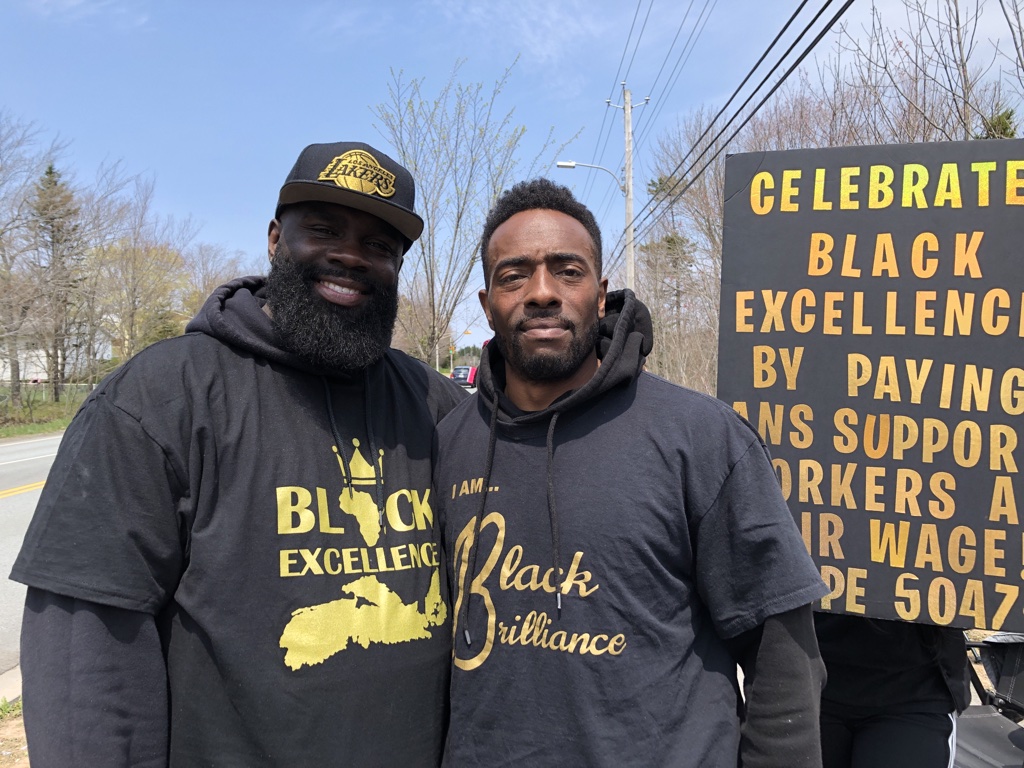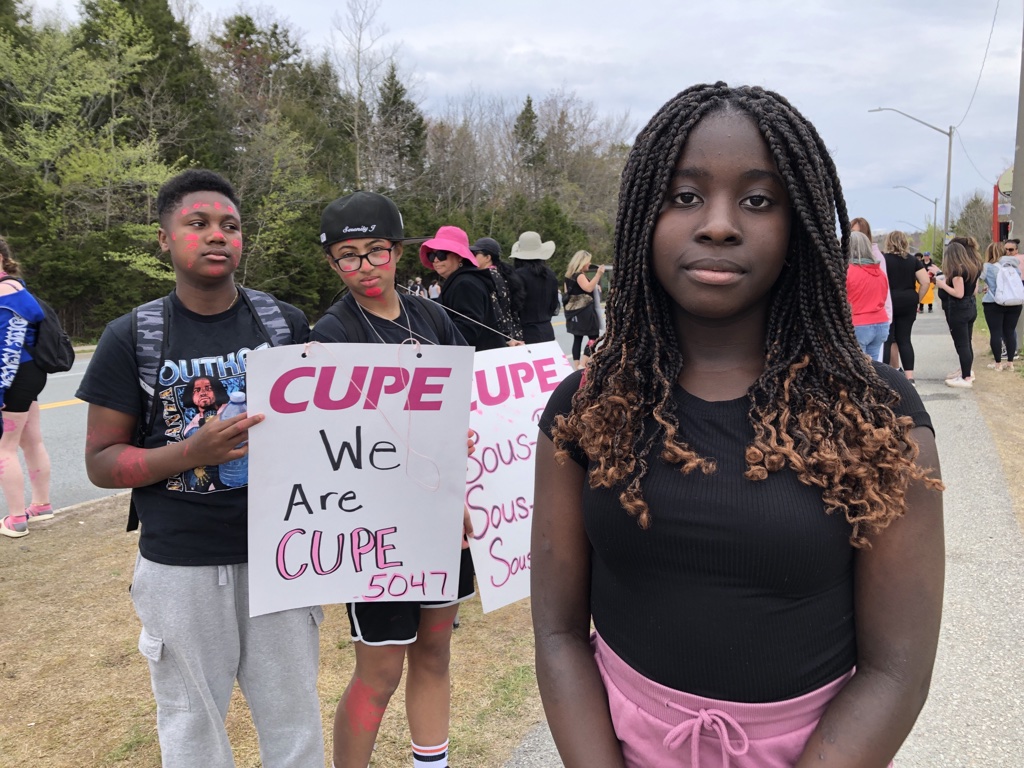A sea of pink T-shirts and signs were replaced with colours of black and gold on the picket lines across the Halifax region on Monday.

Striking school staff donned the new colours to mark Black Excellence Day and to draw attention to cancelled events as many could not go ahead amid the strike.
“Strive for what you want to be — because you are excellent today,” says African Nova Scotian (ANS) student support worker Karl Francis-Williams.
He was praising students from the picket line as the support worker strike enters its second week.
More than 1,800 employees represented by CUPE Local 5047 walked off the job last Wednesday after members voted not to ratify a tentative agreement reached with the province and further talks broke down.
While schools remain open, educational program assistants (EPAs) and other support workers are off the job, and pre-primary programs are paused.
“I think it’s a travesty that we’re out here instead of celebrating with our students — and it’s pretty bad when our students are coming out here to celebrate with us,” says ANS support worker Keith Tasco, who was on the picket line outside Sackville High School on Monday morning.
“The kids shouldn’t have to suffer for the bureaucracy of wages and job positions and things like that,” says Lem Sealey.
He was walking the line outside Cole Harbour High School with AJ Simmonds. They both are worried about the celebrations planned to mark Black Excellence Day.
“I had some guest speakers coming in,” says Simmonds. “Someone coming in to cut hair and I had a barber coming.”

Get daily National news
“I had organized Caribbean food to be delivered to my high school — that had to be cancelled,” adds Sealey.
The support workers say it’s important for them to be fighting for better wages — but they miss their students.
Derrick Brooks isn’t sure if the dance his kids had planned to mark the occasion will go ahead.
“We’ve been practising for a couple of months and it’s disappointing that I can’t follow through,” explains Brooks. “I promised them that we were going to the dance in front of the school.”
Moriah Aladejebi, a Grade 9 student at Sackville High, says it’s hard not having them in the classroom to celebrate.
“When we have them together for Black Excellence Day – we can all gather together and talk at a level that we understand each other as students and as teachers,” Aladejebi says. “Without them there it’s much harder to have that opportunity and connection with our other classmates.”
The support workers say when they’re at school, the kids know they’re never alone.
“You’re a mentor, you’re a tutor, you’re a friend,” says Sealey.
“When I leave school, I’m still working,” adds Simmonds. “I still do the job, I still get calls, I still get texts. I still get all of these things. It’s important for us to do all of that because our kids need us outside of school.”
“We’re uncle, auntie, mom, dad, social worker, sister, brother, we’re their source of food,” says Tasco.
More than that, they help connect youth with their culture.
“It is someone that looks like them that they can relate to,” says Brooks. “In the schools, there’s not a lot of Black staff, so I’m their go-to if they’re uncomfortable, had a bad night — and I’m not there right now.”
In a statement, Education Minister Becky Druhan says the celebrations won’t be the same without these staff members.
“Celebrating Black Excellence in schools provides an opportunity for every student, teacher, and administrator to acknowledge and recognize the past and present achievements, stories, art, and innovations of people of African descent,” says Druhan. “The Black Excellence Day celebrations taking place Monday will not be the same without the presence of African Nova Scotian Student Support Workers in HRCE schools.”
In a letter sent to parents, HRCE’s regional director says the same.
“I recognize that the Black Excellence Day celebrations taking place across HRCE aren’t the same without the presence of our African Nova Scotian Student Support Workers,” says Steve Gallagher. “The joy and commitment they bring to their roles daily makes an important difference for our students of African descent, and our school communities as a whole.”










Comments